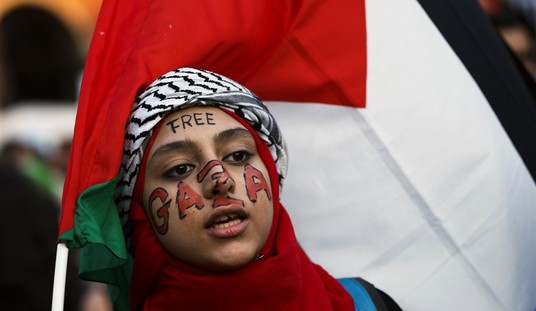Questioned at today’s briefing about the potential for mission creep during anti-ISIS operations in Iraq and Syria, White House press secretary Josh Earnest told reporters today that administration policy “may not lend itself to a reasonably sized bumper sticker.”
Still, he insisted, “the president has been quite clear about what exactly our strategy is inside of Iraq and in Syria.” Prominent lawmakers have accused the White House of having little or no strategy.
“This is a strategy with many components that includes everything from shutting down the flow of foreign fighters to try to counter ISIL’s ability to finance their efforts, but it also includes a military component. And that military component is focused on building up the capacity of local fighters — both in Iraq and in Syria — to take the fight to ISIL on the ground,” Earnest said. “And the United States, and our coalition partners, have unique capabilities, including air power, to support those ongoing efforts on the ground.”
“The president has made clear that, in terms of the fight on the ground, this is not a fight that the United States can fight for them. And in Iraq we have forces operating under the command and control of the Iraqi central government that we can support as they take the fight to ISIL.”
Earnest stressed that the train, advise, and assist mission currently going on is really different from “the long-term, sustained ground combat operations that U.S. military personnel were involved in starting in 2003, and going all the way up to 2010 or 2011.”
“Now, let me just end by saying this, this long explanation is in no way intended to diminish the service, and bravery, and professionalism and skill of our men and women in uniform. It also means that our men and women in uniform on some occasions are going to encounter very dangerous situations. And, in the case of Master Sergeant Wheeler, it cost him his life,” he said of the Delta Force commando killed in the early Thursday raid on an ISIS prison near Hawija, Iraq.
“And there’s no diminishing his contribution to our country’s safety and security, and certainly no diminishing his sacrifice. But he was part of a different mission than the military operations that were carried out under the orders of President Bush in 2003 and 2004.”
At a hearing last week, Senate Armed Services Committee Chairman John McCain (R-Ariz.) faulted the administration for being mired in the “seeming inability or unwillingness to think about our national security challenges as anything other than a litany of individual crises requiring ad hoc, micromanaged responses.”
“The major challenges we face, Russian aggression and expansionism, an increasingly assertive China, the collapse of order in the Middle East, the rise of an even more brilliant form of violent Islamist extremism, escalating cyber-attacks from state and non-state actors: None of these challenges are limited to individual regions of the world and they’re becoming entangled in dangerous ways,” McCain said.









Join the conversation as a VIP Member